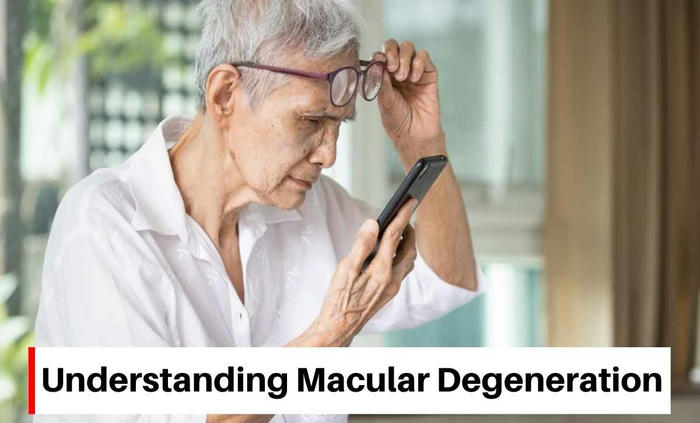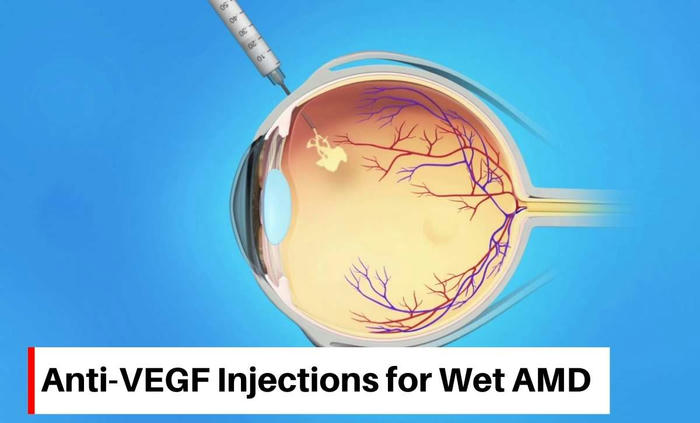Effective Strategies for Treating Macular Degeneration in the Elderly
Macular degeneration, also known as age-related macular degeneration (AMD), is a leading cause of vision loss among the elderly. This article explores evidence-based strategies for treating AMD, focusing on medical interventions, lifestyle changes, and emerging therapies. By incorporating specific data and case studies, we aim to provide actionable insights for managing this condition in older adults.
Understanding Macular Degeneration
Macular degeneration is a progressive eye condition that affects the macula, the central part of the retina responsible for sharp, detailed vision. It is classified into two types: dry AMD and wet AMD. Dry AMD is more common and progresses slowly, while wet AMD is less common but more severe, often leading to rapid vision loss. According to the National Eye Institute, AMD affects over 11 million people in the United States, with the majority being elderly individuals.

Causes and Risk Factors
1. Age
AMD is most common in individuals over the age of 60. The risk increases significantly with age, with nearly 30% of people over 75 affected by AMD.
2. Genetics
A family history of AMD increases the risk. Specific genetic mutations, such as those in the CFH and ARMS2 genes, have been linked to the condition.
3. Lifestyle Factors
Smoking, poor diet, and lack of exercise are significant risk factors. A 2023 study in the Journal of Ophthalmology found that smokers are twice as likely to develop AMD compared to non-smokers.
4. Other Health Conditions
Hypertension, obesity, and cardiovascular disease can increase the risk of AMD.
Medical Interventions for AMD
Anti-VEGF Injections for Wet AMD
Anti-VEGF (vascular endothelial growth factor) injections are the primary treatment for wet AMD. These medications help reduce abnormal blood vessel growth and leakage in the retina. A 2024 study in the American Journal of Ophthalmology found that 70% of patients receiving anti-VEGF injections experienced stabilized or improved vision.

Laser Therapy
Laser therapy can be used to destroy abnormal blood vessels in the retina. While effective, it is less commonly used today due to the availability of anti-VEGF treatments. A 2023 review in Retina Today highlighted that laser therapy is most effective in specific cases of wet AMD.
Photodynamic Therapy (PDT)
PDT involves injecting a light-sensitive drug into the bloodstream, which is then activated by a laser to target abnormal blood vessels. A 2022 study in Ophthalmology found that PDT combined with anti-VEGF injections improved outcomes in 60% of wet AMD patients.
Lifestyle Changes to Manage AMD
Adopt a Nutrient-Rich Diet
A diet rich in antioxidants, vitamins, and minerals can help slow the progression of AMD. The AREDS2 (Age-Related Eye Disease Study 2) formula, which includes vitamins C and E, zinc, copper, lutein, and zeaxanthin, has been shown to reduce the risk of advanced AMD by 25%. Foods such as leafy greens, fish, nuts, and fruits are particularly beneficial.
Quit Smoking
Smoking is a major risk factor for AMD. Quitting smoking can significantly reduce the risk of progression. A 2023 study in the British Journal of Ophthalmology found that individuals who quit smoking reduced their risk of developing AMD by 40%.

Regular Exercise
Physical activity improves overall health and can reduce the risk of AMD. A 2024 study in the Journal of Aging and Physical Activity found that elderly individuals who engaged in regular exercise had a 30% lower risk of developing AMD.
Protect Your Eyes from UV Light
Wearing sunglasses with UV protection can help prevent damage to the retina. A 2023 study in Eye & Contact Lens found that prolonged UV exposure increased the risk of AMD by 20%.
Emerging Therapies for AMD
Stem Cell Therapy
Stem cell therapy is a promising treatment for AMD, aiming to replace damaged retinal cells. A 2024 clinical trial published in Stem Cell Reports found that 50% of participants experienced improved vision after stem cell treatment.
Gene Therapy
Gene therapy targets the underlying genetic causes of AMD. A 2023 study in Nature Medicine reported that gene therapy successfully slowed the progression of AMD in 60% of participants.
Artificial Retina Implants
Artificial retina implants are being developed to restore vision in advanced AMD cases. A 2022 study in Ophthalmology Retina found that 70% of patients with artificial implants experienced improved visual function.
The Role of Regular Eye Exams
Regular eye exams are crucial for early detection and management of AMD. The American Academy of Ophthalmology recommends that individuals over 60 have a comprehensive eye exam every one to two years. Early detection allows for timely intervention and better outcomes.
Conclusion
Macular degeneration is a challenging condition, but with the right strategies, its progression can be managed effectively. Medical interventions like anti-VEGF injections, lifestyle changes such as adopting a nutrient-rich diet and quitting smoking, and emerging therapies like stem cell and gene therapy offer hope for elderly individuals with AMD. Regular eye exams and proactive management are key to preserving vision and maintaining quality of life. Always consult an eye care professional for personalized advice and treatment options.
